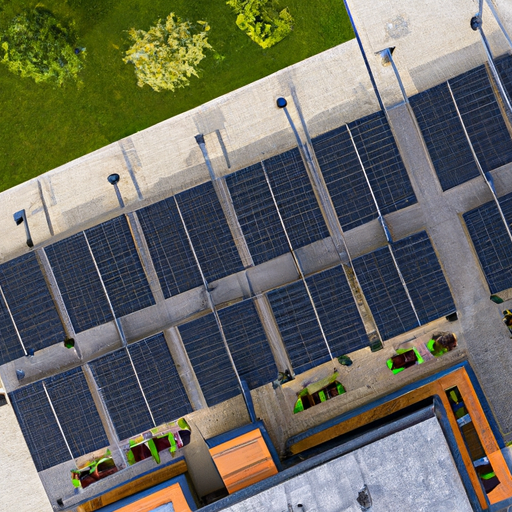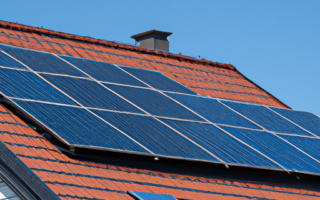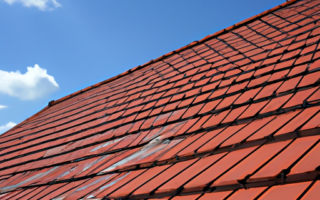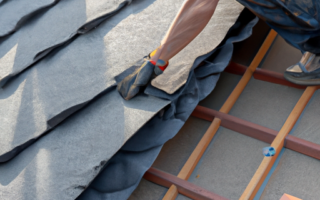Revolutionizing Roof Construction: Exploring the Latest Innovations and Cutting-edge Technologies
Revolutionizing Roof Construction: Exploring the Latest Innovations and Cutting-edge Technologies
Roof construction has come a long way in recent years, thanks to continuous advancements in technology and innovation. From more durable materials to enhanced installation techniques, the latest innovations in roof construction are revolutionizing the industry.
One crucial area where innovation has made a significant impact is the development of eco-friendly roofing solutions. With a growing focus on sustainability and environmental conservation, roofing manufacturers have been investing in the production of green materials. These materials are typically made from recycled content or are themselves recyclable, helping to reduce waste and minimize the carbon footprint of buildings. Furthermore, eco-friendly roofs often feature improved insulation properties, leading to reduced energy consumption and cost savings for building owners.
Another cutting-edge technology transforming roof construction is the use of drone technology for inspections and measurements. Drones equipped with high-resolution cameras and advanced sensors enable roofing professionals to conduct detailed assessments of roofs, identifying potential issues such as leaks or structural damage. Moreover, drones can capture accurate measurements of roof dimensions, facilitating the estimation process and ensuring precise material calculations. This not only saves time but also enhances safety, as it reduces the need for human personnel to climb onto roofs for manual inspections.
Advancements in roofing materials have also had a significant impact on construction practices. For instance, the development of lightweight and flexible roofing membranes has simplified installation processes and improved durability. These membranes, often made from synthetic materials, offer excellent resistance to weather conditions and can adapt to the shape and contours of the roof. Additionally, innovations in self-adhering roofing systems eliminate the need for heat application during installation, minimizing the risk of accidents and making the overall process more efficient.
The integration of smart technologies and sensors in roof construction is yet another groundbreaking innovation. Connected roofs can provide real-time data on temperature, humidity, and even potential leaks, allowing for proactive maintenance and the prevention of costly damages. Furthermore, the use of solar panels integrated directly into the roof surface is becoming increasingly popular. These solar roofs provide a sustainable and energy-efficient solution, harnessing the power of the sun to generate electricity and reduce reliance on traditional energy sources.
In conclusion, the latest innovations in roof construction are transforming the industry and revolutionizing how roofs are designed, built, and maintained. From eco-friendly materials to the integration of smart technologies, these advancements offer numerous benefits, including improved durability, enhanced energy efficiency, and cost savings. As the industry continues to evolve, it is essential for professionals to stay updated on these innovations and adopt best practices to ensure the construction of high-quality and sustainable roofs.
Unveiling the Future of Roofing: Advancements and Best Practices in Construction
As technology continues to advance, every aspect of construction is being transformed, including the roofing industry. The latest innovations in roof construction are revolutionizing the way roofs are designed, built, and maintained. From advanced materials to smart technology integration, these advancements are not only enhancing the performance and durability of roofs but also simplifying the installation process and improving overall safety.
One of the key advancements in roof construction is the use of advanced materials. Manufacturers are constantly developing new materials that offer superior strength, longevity, and resistance to weather elements. Some of these materials include synthetic slate, metal roofing systems, and solar tiles. Synthetic slate, made from recycled materials, provides the same aesthetic appeal as real slate but is lighter and more affordable. Metal roofing systems are highly durable, energy-efficient, and can withstand extreme weather conditions. Solar tiles integrate photovoltaic cells within the roof, converting sunlight into electricity, thus increasing the energy efficiency of buildings.
Another major trend in roof construction is the integration of smart technology. Smart roofs are equipped with sensors and monitoring devices that can detect leaks, temperature changes, and other potential issues in real-time. This helps to identify problems early on and enables proactive maintenance, saving both time and money. Additionally, smart technology allows for remote control and monitoring of various roof functions, such as ventilation and insulation, optimizing energy efficiency and comfort within the building.
When it comes to best practices in roof construction, safety is a top priority. With the advancement of technology, new safety measures have been introduced to protect workers during roof installation and maintenance. For example, the use of drones for roof inspections eliminates the need for workers to physically access hazardous areas. Drones can capture high-resolution images and videos of the roof, allowing for thorough inspections without putting anyone at risk. Additionally, the use of automated equipment and robots can reduce the need for manual labor, minimizing injuries and accidents.
In conclusion, the future of roof construction is filled with exciting advancements and best practices. From advanced materials to smart technology integration and enhanced safety measures, these innovations are reshaping the roofing industry. As building owners and professionals embrace these changes, they can expect more efficient, sustainable, and durable roofs that meet the evolving needs of the 21st century.



